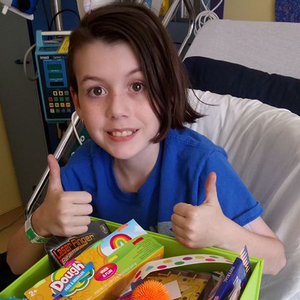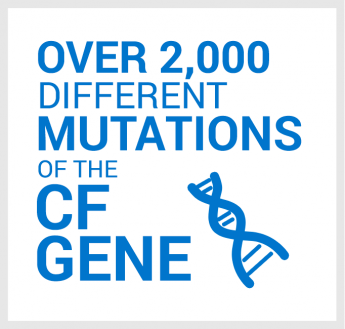Dr. Tanja Gonska is an Associate Professor in the Division of Paediatric Gastroenterology, Hepatology, and Nutrition at the University of Toronto, specializing in paediatric pancreas diseases and cystic fibrosis. Dr. Gonska has made significant contributions to understanding and treating these complex conditions. She also holds prestigious appointments in the Institute of Medical Science, Department of Physiology, St. Michael’s Hospital and serves as a Senior Associate Scientist at the SickKids Research Institute.
Dr. Gonska's latest research project, titled "Interrogating the Causes for Persisting Gastrointestinal (GI) Symptoms in People with CF on Treatment with High-Efficiency CFTR Modulators (HEMT)," aims to improve gastrointestinal pain management for cystic fibrosis patients and recently received funding from Cystic Fibrosis Canada. This funding support will advance her research to understand why some people with cystic fibrosis still have stomach problems even with the latest cystic fibrosis transmembrane conductance regulator (CFTR) modulator treatments, aiming to improve their care and quality of life.
Dr. Gonska’s unique background that combines lung and digestive health gives her a broad understanding of cystic fibrosis (CF). She started as a lung specialist in Germany before moving to SickKids, where she focused on digestive health. This combination of skills allows her to treat CF as a whole-body disease, looking at both breathing and stomach problems, which are often linked. “My training in pulmonology and later in gastroenterology has provided me with a unique perspective on CF,” Dr. Gonska explains. “This dual approach allows us to address the disease more comprehensively.”
One of Dr. Gonska's primary research interests is the gastrointestinal (GI) manifestations of CF, a relatively underexplored area compared to the respiratory aspects of the disease. Despite advancements in CFTR modulators that alleviate many airway symptoms, many patients continue to experience significant abdominal pain and GI problems. Dr. Gonska's work aims to understand the underlying mechanisms of these symptoms and develop targeted treatments. “While the new CFTR modulators are a breakthrough for respiratory symptoms, the GI issues persist for many patients. Our goal is to find out why and how we can help,” she notes.
At the core of Dr. Gonska's research is the CFTR protein, which is defective in CF patients. CFTR dysfunction not only affects the lungs but also the entire digestive system. When the CFTR protein doesn't work properly, it leads to problems with how ions, like chloride and bicarbonate, move in and out of cells. This causes the mucus in the intestines to become thick and sticky. This sticky mucus can change the balance of bacteria in the gut, leading to inflammation and problems with how the intestines move food along. Dr. Gonska's research highlights the importance of these changes in contributing to abdominal pain and other GI symptoms. “Understanding CFTR dysfunction helps us see the full picture of how CF impacts the body, not just the lungs but the entire digestive system,” she emphasizes.
Dr. Gonska uses a range of cutting-edge research methods to study these digestive problems. Using a tiny camera inside a pill that patients swallow – a procedure called video capsule endoscopy – she can get a look inside the small intestine and check for inflammation. She also measures a substance in stool called fecal calprotectin, which helps determine if the digestive issues are due to inflammation or other causes in CF patients. “These technologies allow us to see inside the body and measure inflammation in ways that weren’t possible before,” says Dr. Gonska. “It’s a game-changer for diagnosing and treating GI symptoms in CF, as it may direct different therapies.”
A key aspect of Dr. Gonska's research is the potential for personalized medicine. She emphasizes the need to tailor treatments based on individual patient profiles. By collaborating with experts in nuclear medicine, she aims to develop objective measures of GI dysfunction, such as nuclear tracers for motility assessment. This approach could lead to more targeted and effective treatments for CF patients with persistent GI symptoms. “Personalized medicine is the future. Each patient is unique, and our treatments need to reflect that,” Dr. Gonska asserts.
Dr. Gonska is also involved in longitudinal studies that follow CF patients from childhood into adulthood. These studies have revealed important insights into the progression of the disease and the development of CFTR-related disorders. Her work has shown that a significant percentage of patients with borderline CF diagnostic criteria in childhood may later fulfill criteria for a CF diagnosis. These patients have a genetic risk of developing CF or CFTR-related conditions. This finding showcases the importance of continuous monitoring and early intervention. “Long-term studies are crucial,” says Dr. Gonska. “They help us understand how the disease evolves and how we can intervene early to improve outcomes.”?
Her research is characterized by extensive collaboration. She works closely with other specialists, including those in molecular biology, microbiome research and nuclear medicine, to gain a comprehensive understanding of CF. Her involvement in national and international research consortia has been instrumental in advancing the field and ensuring that patients receive the best possible care. “Collaboration is key to making progress in CF research,” Dr. Gonska explains. “By working together, we can pool our knowledge and resources to find better solutions for patients.”
Dr. Gonska's contributions to CF research have had a profound impact on the field. Her focus on GI symptoms has brought much-needed attention to this often-overlooked aspect of CF, leading to improved diagnostics and treatment strategies. Her work has not only enhanced our understanding of the disease but also paved the way for more personalized and effective care for CF patients. “Our research has already changed how we approach CF treatment,” she says. “And we’re just getting started.”
Looking ahead, Dr. Gonska aims to further explore the complex interactions between CFTR dysfunction, the gut microbiome, and inflammation. She plans to expand her research into the use of organoid models, which are tiny, simplified versions of organs grown in the lab. These organoid models help scientists study how the intestines work, including how they allow substances to pass through and how they respond to inflammation. By using these models to study intestinal permeability and innate inflammation in CF, Dr. Gonska's efforts could lead to groundbreaking discoveries and novel therapeutic approaches. “Organoid models offer a new frontier in our research. They can mimic the human intestine and help us uncover new treatments for CF patients,” Dr. Gonska concludes.
Reflecting on the progress made so far, Dr. Gonska expressed her heartfelt gratitude to everyone involved in the fight against cystic fibrosis. She stated, "I want to thank all CF patients who came in contact with me and participated in my studies. I value the input of CF patients in what research they want to see and how they are advocating for themselves to improve life with CF. I also want to thank all the donors to Cystic Fibrosis Canada who understand where the future of CF medicine and science is heading and are supporting this research. Your contributions are essential not only for addressing CFTR dysfunction but truly altering the quality of life for patients with CF."
With continued dedication and support from the CF community and donors, Dr. Gonska remains optimistic about the future. Her research not only holds the promise of innovative treatments but also inspires hope for a brighter, healthier future for all those affected by cystic fibrosis.





